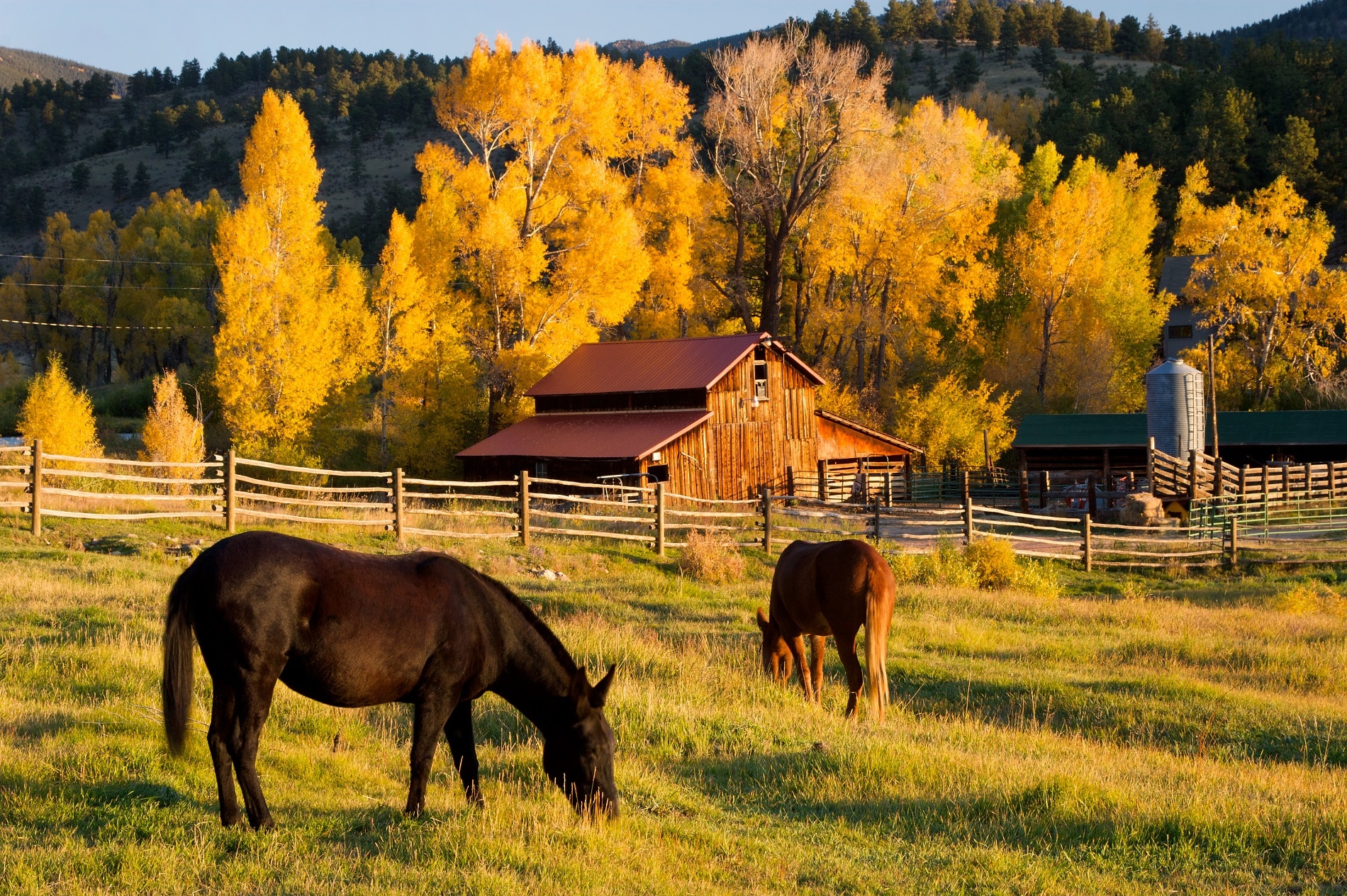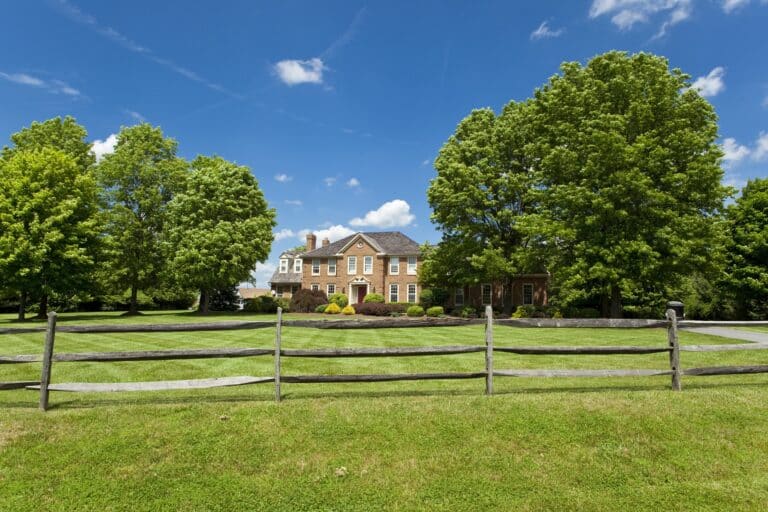There’s a lot to consider when purchasing a plot of land. And for first-time buyers, budgets, property features, offers, and other aspects of real estate deals can seem confusing. With the right guidance, however, you can expedite the timeline, get a better deal, and enjoy your new property sooner.
While partnering with a knowledgeable agent is essential, so is learning about the land-buying process for yourself.
This guide will give you a comprehensive overview of the procedures and preparations necessary to buy a piece of rural land. From organizing your cash and loans to finding the proper representation, there are several steps to purchasing a property. But with the right tools, the process can be quicker and easier than you may think.
First Things First: Determine Your Budget
How much you’re willing to spend is, above all, the ultimate factor dictating the types of plots you can consider. You may be able to negotiate a little bit to bring a higher-priced property down into your range, but more or less, most sellers won’t consider any offers more than 10% below their asking price.1
So, before even browsing a listing site or opening a realty magazine, be sure to set a maximum of how much you’re planning to spend. To get a solid sense of how expensive of a property you can afford, consider:
- Your current cash reserves and assets – Review your bank statements and any cash you keep on hand to see how much you have saved up to put toward a property. Likewise, consider any assets you can part with before starting your new rural lifestyle. Push lawnmowers, compact cars, and other markers of city and suburban life might not serve you well on a homestead or ranch, but their sale value can contribute to purchasing a better plot of land.
- Borrowing from family and friends – If you have anyone in your close inner circle willing to give you a low or no-interest loan to make your dreams come true, take it before seeking out professional lenders. You should still arrange a structured repayment plan to put everyone’s minds at ease, but in comparison to mortgage brokers and other lenders, you’ll likely get a lower rate from friends and family.
- Grants – Plenty of government grants exist for first-time home and property buyers. Before paying full price for a plot, research what kinds of financial aid you may be eligible for. From down payment assistance to closing cost coverage, forgivable loans, tax credits, and interest rate discounts, there’s a solid chance that one or more first-time buyer programs could help you cover a portion of your property’s cost.2
- A mortgage – Not all lenders offer mortgages to individuals looking to buy land, but if you can find one that does, you’ll likely get a better deal than taking out a personal loan. Currently, average Annual Percentage Rates (APRs), or the amount of interest you’ll pay on your mortgage, are hovering just under 7% for a 30-year mortgage—quite a bit lower than other kinds of loans from private lenders.3
- A personal loan – Lastly, if you really want a piece of rural property but your own accounts, friends and relatives, and mortgage brokers are all coming up short, you can try taking out a personal loan. If you do, however, be ready to pay the price. Currently, average interest rates for personal loans are over 15%—more than double that of standard 30-year mortgages.4
After exploring and exhausting all these options, you should have a keen idea of how much you can realistically afford to spend on a piece of property. Then, you can begin shopping around for the perfect lot to match your needs and aspirations.
Start Searching for a Property That Suits You
After firming up your budget, you can begin searching for your ideal plot of land. Just like establishing a spending limit, there’s plenty to think about when pondering the parameters of your perfect property. To make sure you make the right choice, start by:
- Deciding on a general location – The territory of the US spans a wide variety of landform regions, climates, and cultures. Determine how you want to use your future land, the amount of space you need, and the state or region you’d like to live in. Then, search for areas that will accommodate all your needs and budget. If you want to raise livestock, hunt, or develop on your land, for instance, read local ordinances ahead of time to ensure they don’t prohibit you from doing so.
- Researching local land prices – Land prices range widely throughout America based on factors such as location, utility, and availability. On the lower end of the spectrum, an acre of land can go for just over $4,000. Meanwhile, the most expensive states can command an eye-popping $350,000 per acre.5 After deciding precisely where you want to purchase, look into the area’s average prices to ensure whatever plots you look at are in line with local rates.
- Finding your property – If you want to try finding a plot of land the classic way, you can take a drive around the area you wish to purchase in looking for For Sale signs. You can also pop open the Classifieds section of the local paper and see what it may have in store. If you want to expedite the process, increase your options, and likely save some money, then you’re better off perusing an online listing service (more on this after discussing the importance of agents).
Once you’ve found a plot of land to call your own, the next step is actually signing the papers and closing the deal. For this part of the process, you’re going to want the assistance of a knowledgeable rural property agent.
Use a Buyer’s Agent to Close the Deal and Avoid Future Headaches
If you’ve settled on a piece of land and you’re ready to make an offer, do it through a reliable agent rather than on your own. Informed buyer’s agents know property transfer laws, negotiations, and seller’s liabilities like the backs of their hands. Enlisting the help of an agent who specializes in rural property purchases can:
- Save you money – Buyer’s agents are paid by property sellers meaning, as a buyer, they usually cost you nothing. They’re also highly skilled in the art of real estate negotiation and can often get you a better deal on a piece of land than you could score on your own. They can even help you navigate loan and mortgage applications if you’ll be taking them out for your property.6
- Help you access more properties – Buyer’s agents are often well-connected and can boast a network of sellers and properties that aren’t posted to local listings. They may be able to get you early, privileged access to a plot of land before the general public becomes aware of its sale. Enlisting their help may just let you find the perfect property that you didn’t even know was on the market.
- Identify issues with land – Knowledgeable rural land agents can look over a property and pick out hidden faults or problems with it. Potential for flooding, proximity to airports or other loud areas, and zoning restrictions are all issues an informed local agent should know about—even if they aren’t obvious the first time you view a property.
- Explain and expedite paperwork – After deciding on a piece of land to purchase, there’s going to be a mountain of paperwork the size of Denali to process before closing the deal. Buyer’s agents know these forms and contracts like the backs of their hands, can quickly identify inconsistencies or issues in them, and ensure the transfer is fair, fast, and fully legal.6
- Assist you with any potential problems after the sale – If an issue arises after purchasing a piece of land that didn’t come up during inspections and closing, buyer’s agents can help you seek resolution. In cases where the issue is significant, and the seller is responsible for addressing it, agents can assist you in navigating the legal procedures to file a claim against the previous owner and secure appropriate compensation.
All in all, buyer’s agents are vital for closing real estate sales and ensuring you get a fair deal in the transaction. While they often have access to their own pool of properties, it’s still pertinent to search online to ensure you get a robust idea of an area’s available land.
At Land.com, we provide access to a nationwide network of seasoned brokers and agents who are ready to support you in securing your property. Find a skilled Land Professional in your area to guarantee a smooth and efficient purchase. And, to quickly and easily find properties that meet your expectations and budget, peruse our current listings.
Use Land.com to Find the Best Rural Properties Across America
Whether you’re looking to carve off a slice of the New Mexican desert or slide into a beachfront hideaway on the Washington coast, your perfect property is waiting at Land.com. We have almost 500,000 rural properties available across the US and are adding more by the day.
Land.com works with an extensive network of reliable real estate firms to list the best and most beautiful ranches, homes, and plots of land in the country. Check out our extensive selection—your perfect property is only a few clicks away.
Sources:
- National Association of Realtors. How Much To Offer on a House: Should You Go Below or Above Asking Price?.https://www.realtor.com/
- Cable News Network. Your guide to first-time homebuyer grants. https://www.cnn.com/
- Forbes. Current Mortgage Rates. https://www.forbes.com/
- Forbes. Average Personal Interest Loan Rates. https://www.forbes.com/
- Zippia. How Much An Acre Of Land Costs In Each State. https://www.zippia.com/
- U.S. News. Should You Use a Buyer’s Agent?. https://realestate.usnews.com/

